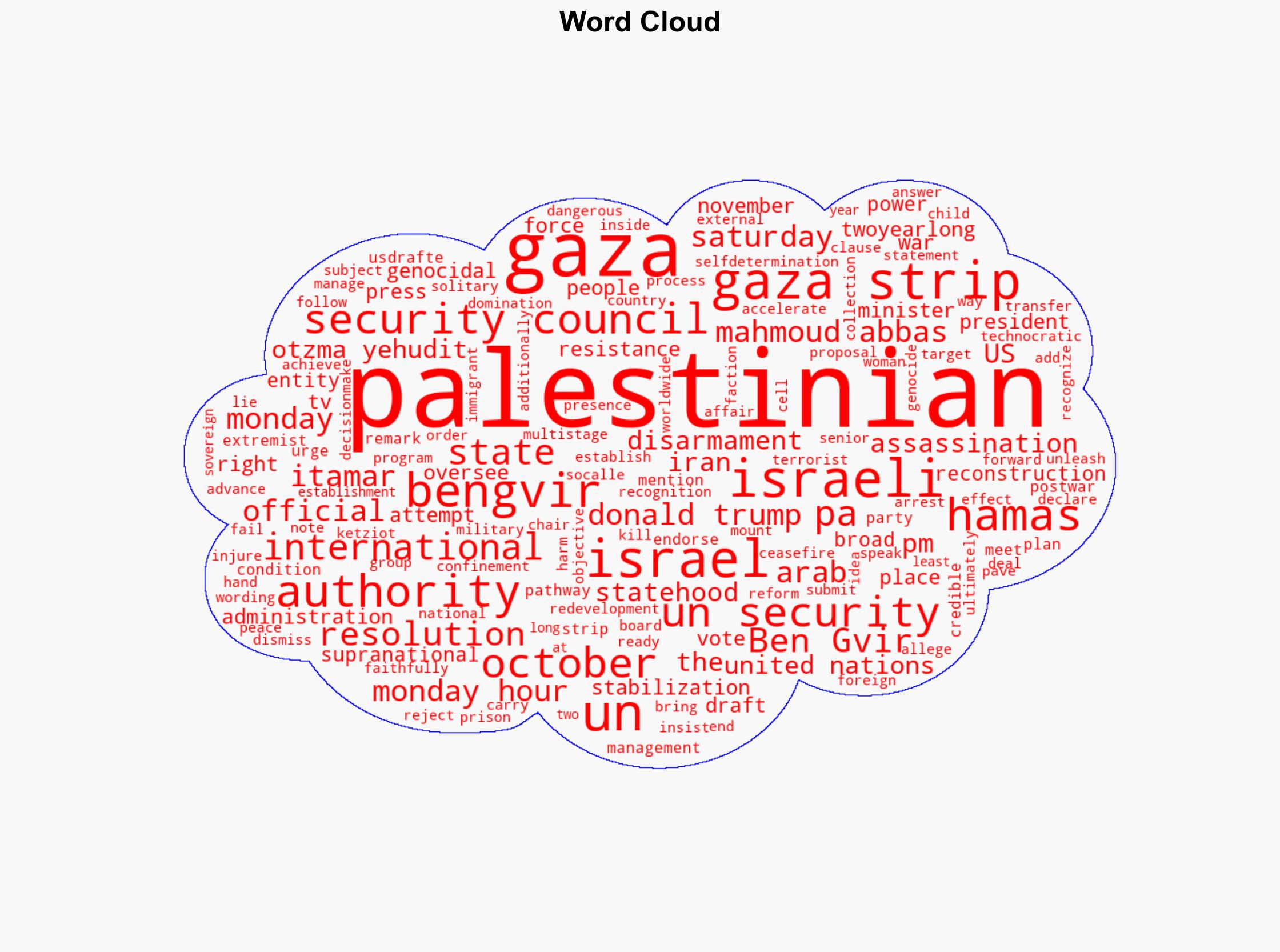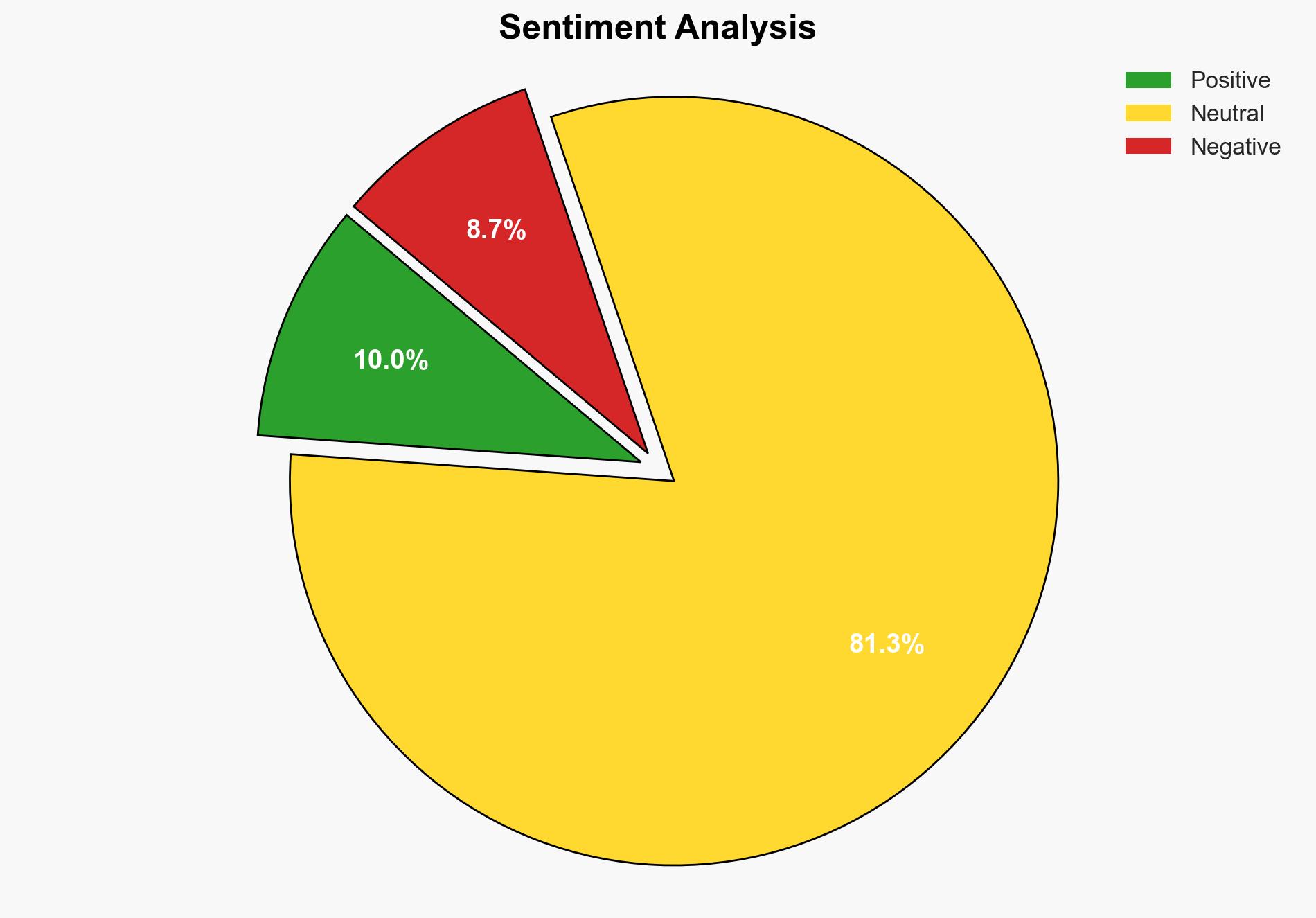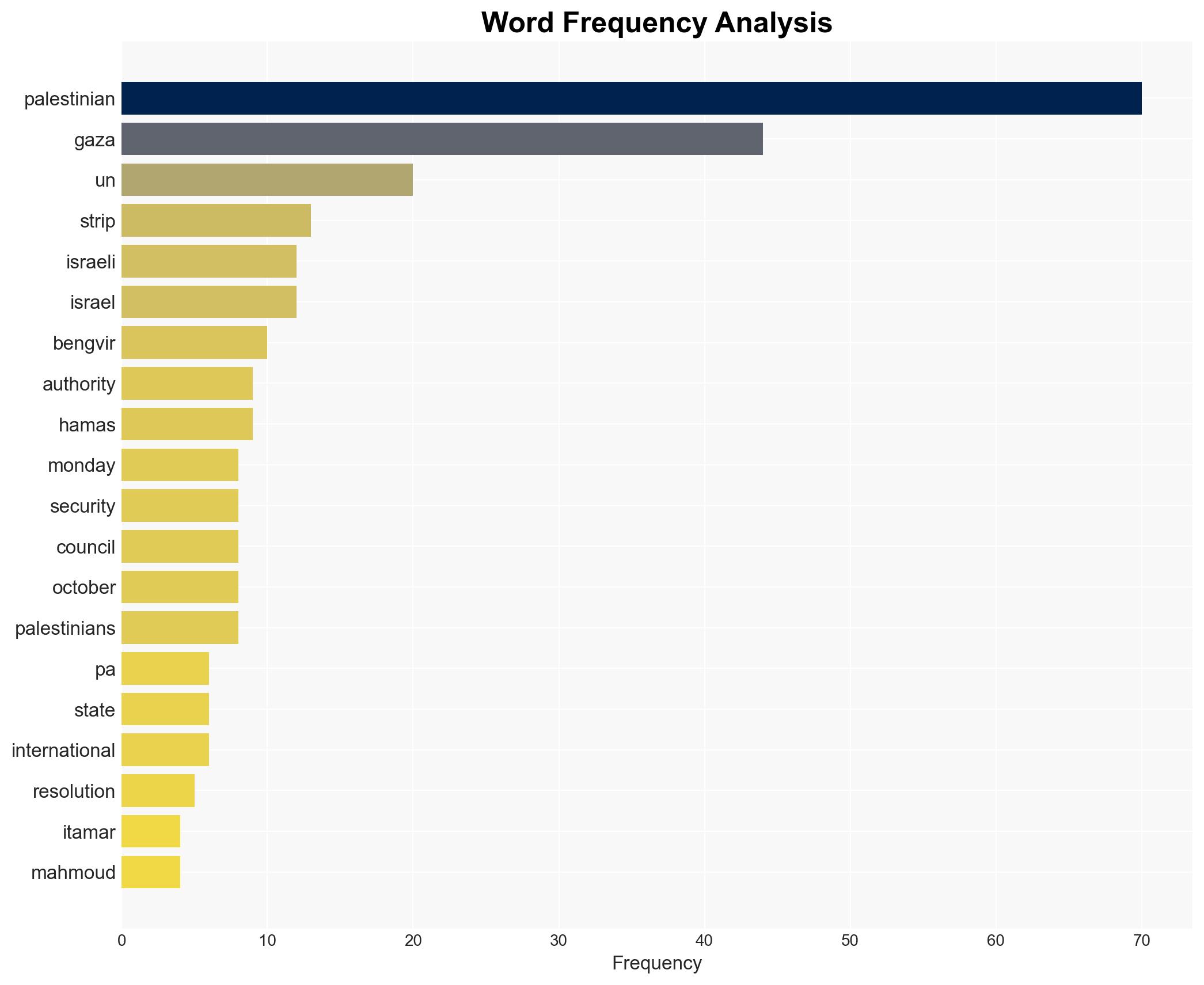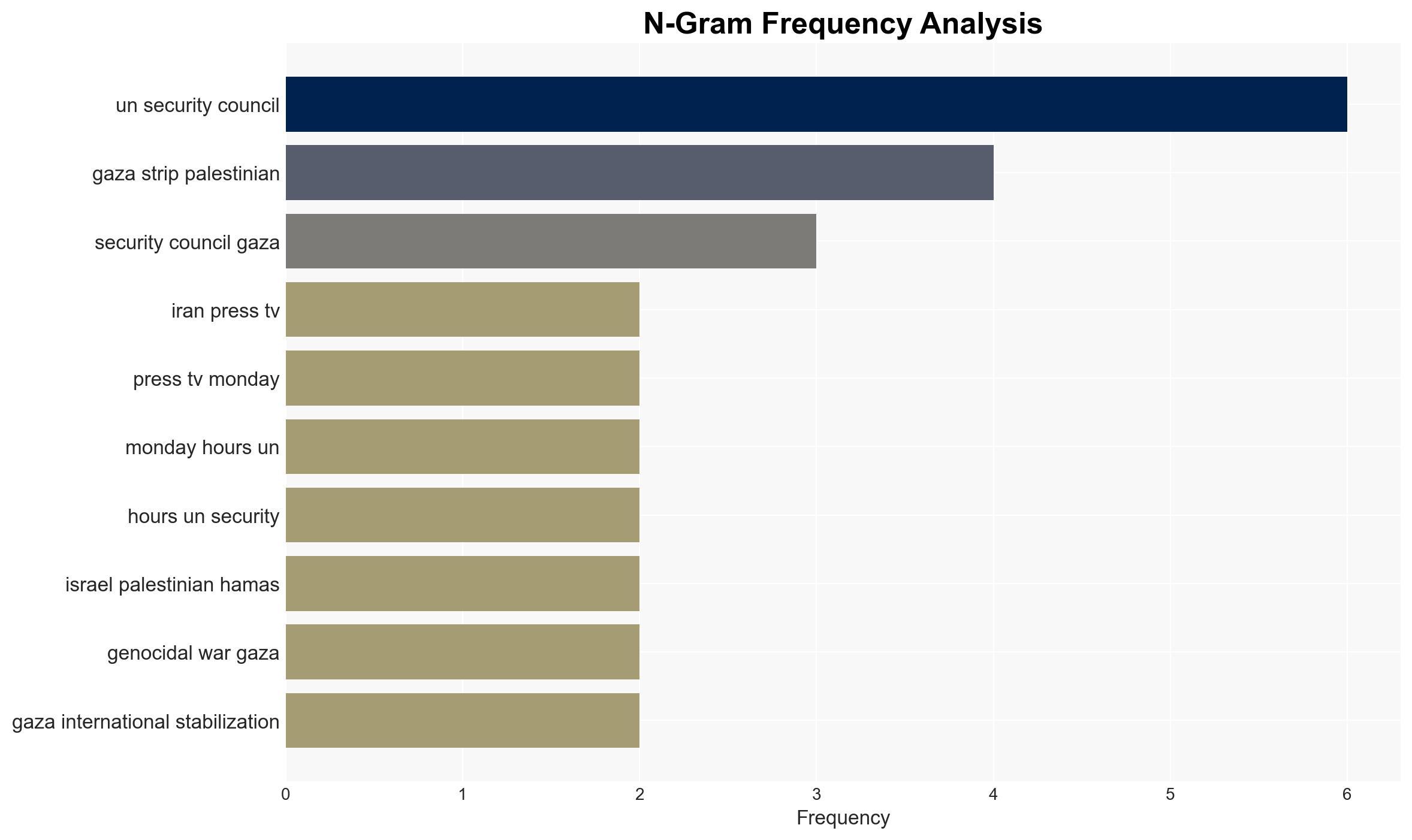Israeli minister urges assassination of PA officials if UN backs Palestinian state – Globalsecurity.org
Published on: 2025-11-18
AI-powered OSINT brief from verified open sources. Automated NLP signal extraction with human verification. See our Methodology and Why WorldWideWatchers.
Intelligence Report:
1. BLUF (Bottom Line Up Front)
The call by Israeli Minister Itamar Ben-Gvir for the assassination of Palestinian Authority (PA) officials if the UN backs Palestinian statehood reflects a significant escalation in rhetoric that could destabilize regional security. The most supported hypothesis is that this statement is intended to exert political pressure on the UN and deter international recognition of Palestinian statehood. Confidence Level: Moderate. Recommended action includes diplomatic engagement to de-escalate tensions and monitoring of potential retaliatory actions by Palestinian factions.
2. Competing Hypotheses
Hypothesis 1: Ben-Gvir’s statement is primarily a political maneuver aimed at influencing the UN vote and deterring international support for Palestinian statehood. This hypothesis is supported by the timing of the statement, coinciding with the UN Security Council’s deliberations, and the historical use of aggressive rhetoric by Israeli politicians to influence international opinion.
Hypothesis 2: The statement reflects a genuine intent to escalate military actions against PA officials, indicating a shift towards more aggressive Israeli policies in response to perceived threats. This hypothesis considers the broader context of ongoing tensions and recent conflicts, which may have hardened Israeli positions.
Hypothesis 1 is more likely given the lack of immediate military actions following the statement and the historical context of similar rhetoric used for political leverage.
3. Key Assumptions and Red Flags
Assumptions: The statement is assumed to be primarily rhetorical unless corroborated by subsequent military actions. It is also assumed that international actors will respond diplomatically rather than militarily.
Red Flags: Potential indicators of deception include the lack of concrete plans or military movements following the statement. The possibility of misinterpretation by Palestinian factions leading to retaliatory actions is a significant risk.
4. Implications and Strategic Risks
The statement could exacerbate tensions between Israel and Palestinian factions, potentially leading to increased violence or retaliatory attacks. It may also strain Israel’s diplomatic relations with countries supporting Palestinian statehood. The rhetoric could influence public opinion and harden positions on both sides, complicating peace efforts.
5. Recommendations and Outlook
- Engage in diplomatic efforts to de-escalate tensions and encourage dialogue between Israeli and Palestinian leaders.
- Monitor for any signs of military mobilization or retaliatory actions by Palestinian factions.
- Best-case scenario: The statement is recognized as rhetorical, and diplomatic efforts prevent escalation.
- Worst-case scenario: The statement leads to increased violence and destabilization of the region.
- Most-likely scenario: The statement influences the UN vote, but no immediate military actions occur.
6. Key Individuals and Entities
Itamar Ben-Gvir, Israeli Minister; Palestinian Authority officials; United Nations Security Council.
7. Thematic Tags
Structured Analytic Techniques Applied
- Cognitive Bias Stress Test: Expose and correct potential biases in assessments through red-teaming and structured challenge.
- Bayesian Scenario Modeling: Use probabilistic forecasting for conflict trajectories or escalation likelihood.
- Network Influence Mapping: Map relationships between state and non-state actors for impact estimation.
Explore more:
National Security Threats Briefs ·
Daily Summary ·
Support us





